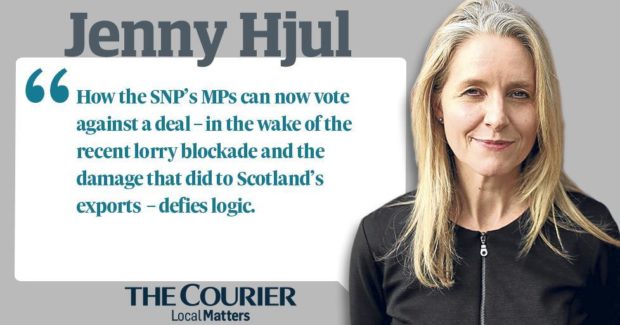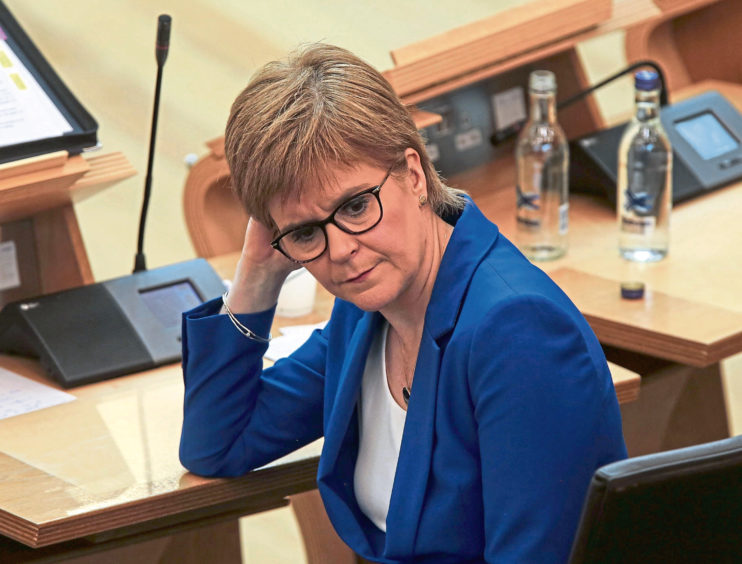Revisiting previous New Year predictions can be an embarrassing game for political pundits, especially where an element of wishful thinking has clouded one’s judgment.
But none of us can be blamed for getting it so wrong in 2020, a year wildly outside our collective experience and beyond our most fervid imaginations.
As 2019 drew to a close, we had just endured a general election which saw Boris Johnson triumphant, the Brexiteers on the front foot and the prospect of 12 more months of tortuous EU negotiations.
In Scotland, the Nationalists were also celebrating, having won 48 Westminster seats plus the gift of a Tory prime minister vilified by Scots.
Nicola Sturgeon published her Scotland’s Right to Choose paper, banging the drum for another independence referendum, and Unionists were worried.
But there was hope that the looming Alex Salmond trial would expose the cracks within the SNP and claim some big scalps, possibly even Sturgeon’s, once the court battle commenced.
Then came Covid. Salmond’s acquittal on sexual offence charges, and the subsequent (ongoing) inquiry into the government’s handling of the affair, might have posed a further threat to SNP unity, but the pandemic trumped party politics.
From March onwards, there was only one story. Sturgeon began appearing daily on our television screens and her authority, not least in her own eyes, was unassailable.
With Boris bumbling in London, she almost persuaded a lot of people she was Scotland’s answer to Jacinda Ardern, the capable leader of a small independent state. She even tried to secure the borders in a stab at separation.
Good and bad news
But Scotland is not New Zealand and the virus, obviously not a Nat, made no distinction between vulnerable English and Scottish hosts.
The good news for Unionists was that Nationalist priorities had to shift and indyref2 talk was mostly confined to the fringes. The bad news was the rise of pro-independence sentiment among voters, a trajectory yet to stall at the year’s end.
So, what can be forecast for next year? One completely safe prediction is that the SNP will pursue its secessionist agenda with renewed vigour.
This is already evident in the party’s decision to vote against the Brexit deal in today’s Commons debate. Just three weeks ago, Sturgeon was telling anyone who would listen that a no-deal Brexit would be “catastrophic”.
But that was when crashing out really did look likely. The PM pulling victory (with all the caveats) from the jaws of defeat was a setback for Nationalist strategists, who had expected to exploit Europhile sympathies in Scotland to further their cause.
How the SNP’s MPs can now vote against a deal – in the wake of the recent lorry blockade and the damage that did to Scotland’s exports (particularly valuable, perishable seafood) – defies logic.
Acting in their own interests
If ever proof were needed that the Nationalists act in their own interests, and not in Scotland’s, it is this, putting manufactured political grievances before support for Scottish businesses.
Europe is likely to be overshadowed again, though, by Covid, with Scotland still more or less in lockdown for the start of 2021.
Sturgeon intends to make the Holyrood elections this May a mandate for breaking up Britain, and as long as she maintains her mother of the nation broadcasts, courtesy of the BBC, there will be little the opposition can do to challenge her supremacy.
It is therefore to her advantage, if not ours, to prolong her role in suppressing Scotland’s pandemic – unless she can find another reason for the BBC to give her disproportionate air time.
Approaching the spring ballot
She will thus approach the spring ballot, which she refuses to postpone, on the crest of the Covid wave, while her party’s abysmal domestic record goes largely unscrutinised.
There are two lights on the horizon: the first is the successful roll-out of the vaccination programme throughout the UK. The signs this week are positive that both the Pfizer and Oxford jabs will inoculate millions of the most fragile as soon as February.
Surely, then, common sense will prevail over increasingly implausible doomsday scenarios, public health experts will withdraw from politics, and all deaths will be treated equally.’
‘The SNP may still destroy itself’
The other glimmer of sunshine is that the SNP may still destroy itself before May, or at least inflict some lasting damage.
The Salmond probe resumes shortly and both Salmond himself and Sturgeon are due to appear, on January 19 and 26 respectively.
Sturgeon has already been undermined by her own husband, the SNP’s chief executive Peter Murrell, who made a hash of his evidence this month, prompting demands that he be recalled.
So long as there are no new variants of coronavirus to provide further distractions, the bitter feuding between the Salmond and Sturgeon camps will reveal a political movement more focused on conspiracies and cover-ups than the good governance of Scotland.




